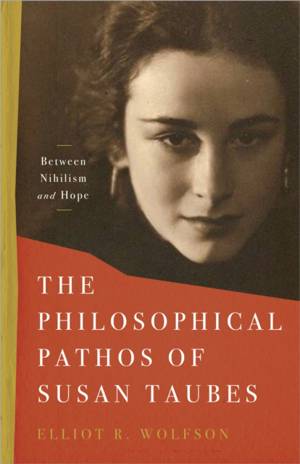
- Afhalen na 1 uur in een winkel met voorraad
- Gratis thuislevering in België vanaf € 30
- Ruim aanbod met 7 miljoen producten
- Afhalen na 1 uur in een winkel met voorraad
- Gratis thuislevering in België vanaf € 30
- Ruim aanbod met 7 miljoen producten
Omschrijving
The Philosophical Pathos of Susan Taubes offers a detailed analysis of an extraordinary figure in the twentieth-century history of Jewish thought, Western philosophy, and the study of religion. Drawing on close readings of Susan Taubes's writings, including her correspondence with Jacob Taubes, scholarly essays, literary compositions, and poems, Elliot R. Wolfson plumbs the depths of the tragic sensibility that shaped her worldview, hovering between the poles of nihilism and hope.
By placing Susan Taubes in dialogue with a host of other seminal thinkers, Wolfson illumines how she presciently explored the hypernomian status of Jewish ritual and belief after the Holocaust; the theopolitical challenges of Zionism and the dangers of ethnonationalism; the antitheological theology and gnostic repercussions of Heideggerian thought; the mystical atheism and apophaticism of tragedy in Simone Weil; and the understanding of poetry as the means to face the faceless and to confront the silence of death in the temporal overcoming of time through time. Wolfson delves into the abyss that molded Susan Taubes's mytheological thinking, making a powerful case for the continued relevance of her work to the study of philosophy and religion today.
Specificaties
Betrokkenen
- Auteur(s):
- Uitgeverij:
Inhoud
- Aantal bladzijden:
- 504
- Taal:
- Engels
- Reeks:
Eigenschappen
- Productcode (EAN):
- 9781503633186
- Verschijningsdatum:
- 11/04/2023
- Uitvoering:
- Hardcover
- Formaat:
- Genaaid
- Afmetingen:
- 155 mm x 229 mm
- Gewicht:
- 816 g

Alleen bij Standaard Boekhandel
Beoordelingen
We publiceren alleen reviews die voldoen aan de voorwaarden voor reviews. Bekijk onze voorwaarden voor reviews.











